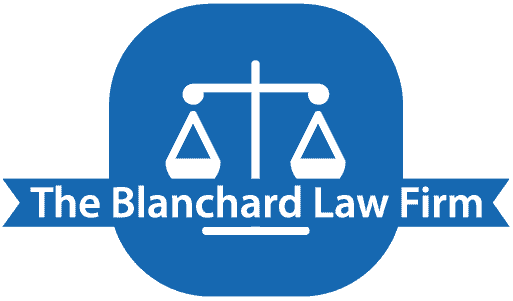
10 Dec How to Create Future-Proof Estate Planning for 2025 and Beyond
How to Future-Proof Your Estate Plan
Estate planning may sound like something only the wealthy need to worry about, but the truth is that everyone can benefit from having a solid plan in place for their assets, healthcare, and loved ones.
A well-thought-out estate plan ensures your wishes are honored, protects your family from unnecessary stress, and safeguards your legacy. In this guide, we’ll explore how to create a future-proof estate plan that addresses the challenges and opportunities of 2025 and beyond.

Why Estate Planning Matters More Than Ever
As we move deeper into the 21st century, changes in technology, law, and society require us to rethink traditional approaches to estate planning. Here are some reasons why planning ahead is critical:
- Digital Assets: Our lives are increasingly digital, from cryptocurrencies to social media accounts. Without a plan, these assets could be lost or inaccessible.
- Healthcare Advancements: Medical technology is evolving rapidly, making it essential to outline your healthcare preferences in advance.
- Changing Tax Laws: Estate and inheritance tax laws are frequently revised, and an outdated plan could cost your heirs dearly.
- Longevity and Retirement: Your plan must address long-term care and financial stability for people who are living longer.
- Global Connections: Families are more geographically dispersed than ever, raising unique legal and logistical challenges.
Step 1: Assess Your Current Situation
Begin by taking an inventory of your assets, liabilities, and personal wishes. This includes:
- Financial Assets: Bank accounts, retirement funds, investments, and properties.
- Physical Assets: Real estate, vehicles, heirlooms, and other valuables.
- Digital Assets: Social media accounts, digital wallets, and online subscriptions.
- Liabilities: Mortgages, loans, and debts.
- Personal Wishes: Consider how you want your assets distributed, who will care for minor children, and your preferred healthcare decisions.
Create a comprehensive list to ensure nothing is overlooked.
Step 2: Draft Essential Documents
Certain documents are non-negotiable to future-proof your estate plan. These include:
- Will: A will is the cornerstone of any estate plan. It specifies how your assets will be distributed and appoints guardians for minor children.
- Revocable Living Trust: A trust can help avoid probate, provide privacy, and manage assets if you become incapacitated.
- Power of Attorney (POA): Designate someone to make financial and legal decisions on your behalf if you’re unable to do so.
- Healthcare Directive: Also known as a living will, this document outlines your medical preferences and appoints a healthcare proxy.
- Beneficiary Designations: Ensure your retirement accounts, life insurance policies, and other financial instruments have up-to-date beneficiaries.
Step 3: Address Digital Assets
In the digital age, your estate plan must account for virtual properties and online presence. Here’s how:
- Inventory Digital Assets: Document all online accounts, including login credentials.
- Designate a Digital Executor: Appoint someone to manage your digital assets according to your wishes.
- Specify Instructions: Clearly outline what should happen to each account, whether it’s deletion, memorialization, or transfer of ownership.
Step 4: Plan for Healthcare and Long-Term Care
With increasing life expectancy, healthcare planning is more important than ever. Consider these steps:
- Long-Term Care Insurance: Evaluate policies that cover nursing homes, assisted living, and in-home care.
- Advance Directives: Clearly state your preferences for end-of-life care, including resuscitation and organ donation.
- Healthcare Proxy: Choose someone you trust to make medical decisions if you’re unable.
Step 5: Minimize Taxes and Protect Assets
Tax-efficient strategies can ensure your heirs receive the maximum benefit from your estate. Consider:
- Gifting: Take advantage of annual gift tax exclusions to transfer wealth during your lifetime.
- Charitable Contributions: Donations to qualified organizations can reduce taxable income.
- Trusts: Specialized trusts, such as irrevocable life insurance trusts, can shield assets from taxation.
- Regular Updates: Stay informed about changes in estate and inheritance tax laws.
Step 6: Communicate Your Plan
An estate plan is only effective if your loved ones understand it. Schedule a family meeting to discuss:
- The location of important documents.
- The roles and responsibilities of executors, trustees, and proxies.
- Your values and goals, ensure everyone is on the same page.
Transparency can prevent disputes and confusion down the line.
Step 7: Leverage Technology
Modern tools can simplify estate planning and enhance its longevity. Consider using:
- Cloud Storage: Safely store digital copies of your estate plan for easy access.
- Blockchain Technology: For secure transfer and verification of digital assets.
- AI Tools: To update and optimize your plan as laws and circumstances evolve.
Step 8: Review and Update Regularly
A future-proof estate plan isn’t static. Revisit your plan at least every three to five years or after major life events, such as:
- Marriage or divorce.
- Birth or adoption of a child.
- Significant changes in assets or liabilities.
- Relocation to a new state or country.
- Changes in tax laws.
Step 9: Seek Professional Guidance
While DIY estate planning is an option, consulting professionals can ensure your plan is airtight. Consider:
- Estate Attorneys: Experts who specialize in wills, trusts, and probate laws.
- Financial Advisors: Professionals who can help align your estate plan with your financial goals.
- Tax Specialists: Advisors who can minimize tax liabilities.

Future Trends to Watch
As we look ahead to 2025 and beyond, keep an eye on these trends that could impact estate planning:
- Digital Legacy Laws: Governments enact regulations for managing digital assets after death.
- Environmental Concerns: Growing interest in sustainable practices, such as green burials.
- Globalization: Increased need for cross-border estate planning due to international families and assets.
- AI Integration: Tools that predict financial needs and optimize plans using machine learning.
- Virtual Reality Memorials: Emerging platforms for preserving memories in virtual spaces.
How Does This Affect a Person’s Family?
A future-proof estate plan has profound effects on a person’s family. First and foremost, it provides clarity and direction during emotionally challenging times. When a loved one passes away or becomes incapacitated, families often face tough decisions.
A well-structured estate plan eliminates guesswork by clearly outlining the individual’s wishes, reducing potential disputes or misunderstandings.
Financially, a comprehensive estate plan protects family members from unnecessary expenses. By minimizing taxes, avoiding probate, and ensuring efficient asset distribution, the plan preserves more of the estate for loved ones.
This financial security can provide a safety net for surviving family members, helping them maintain their standard of living and meet future needs.
Moreover, estate planning offers the planner and their family peace of mind. Knowing that critical matters like guardianship for minor children, healthcare decisions, and asset management are addressed alleviates stress and uncertainty. For families, this translates to smoother transitions and less emotional burden.
Families may face additional complexities in today’s interconnected world, such as managing digital assets or navigating international laws. A future-proof plan ensures these challenges are accounted for, preventing potential roadblocks.
Ultimately, an estate plan is a gift of foresight and love. It protects relationships, ensures the fulfillment of the individual’s values and goals, and empowers families to move forward confidently, even in the face of adversity.
Your Turn To Get Planning
Creating a future-proof estate plan requires a proactive approach and a willingness to adapt to new realities. By assessing your situation, drafting essential documents, addressing digital assets, and staying informed about legal and technological advancements, you can ensure that your plan protects your loved ones and preserves your legacy.
While the process may seem complex, breaking it into manageable steps and seeking professional guidance can make it more accessible for the average person.
Start planning today to secure peace of mind for yourself and your family in 2025 and beyond. The effort you invest now will pay dividends in clarity, security, and the enduring fulfillment of your wishes.

Sorry, the comment form is closed at this time.